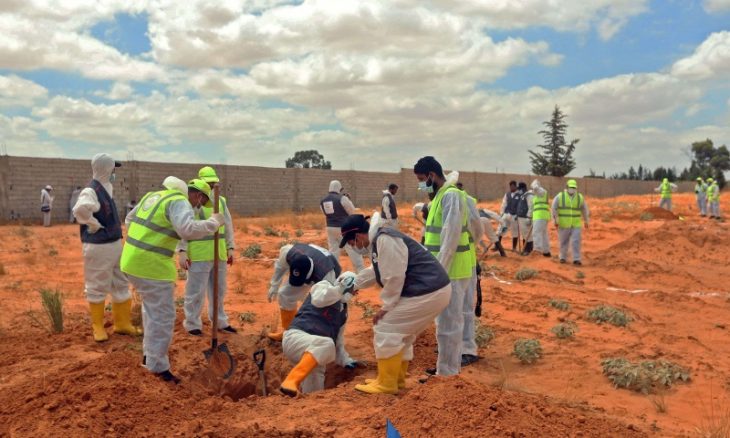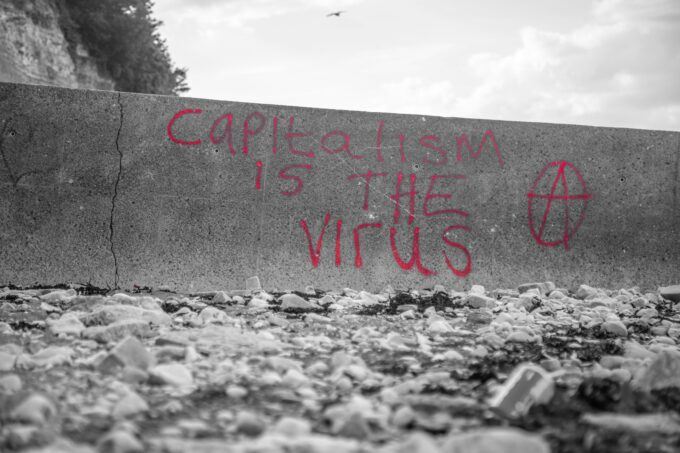
Mustafa Dalea:
Finally, the International Criminal Court decided to send a committee to investigate the crimes committed by the militias of the revolutionary general Khalifa Hifter, during the 14 months of its aggression against the Libyan capital, Tripoli.
These crimes include the genocide of families in the city of Tarhuna, crimes against humanity, by kidnapping, torturing and torturing civilians and mutilating their civilians, and war crimes that have included bombing civilian neighborhoods, targeting medical personnel, and killing prisoners, among others.
All of these crimes committed by the militia of Haftar , related to genocide, crimes against humanity and war crimes, which were documented by the Libyan authorities, fall within the jurisdiction of the International Criminal Court, whose goals include not to allow criminals to escape punishment.
On Tuesday, Libyan Foreign Ministry spokesman Mohamed al-Qiblawi announced that the criminal court approved the request of President of the Presidential Council, Fayez al-Sarraj, regarding the dispatch of a team to investigate the crimes of Haftar militias in Tarhuna, south of the capital, in the second half of July.
It is not certain whether the ICC team will content itself with investigating the mass graves in Tarhuna and south of Tripoli, or whether its work will include all genocide, crimes against humanity and war crimes that fall within the jurisdiction of the International Court.
In sum, however, the most important crimes committed by the Haftar militias since their attack on Tripoli on April 4, 2019, which fall under the jurisdiction of the International Criminal Court, can be summarized in the following points:
1- Crimes of extermination of families in Tarhuna: The militia of the 9th Brigade of Tarhuna, which is led by the Al-Kani family of the Haftar militias, exterminated families in Tarhuna in whole or in part, and was not spared from their crimes even infants or pregnant women, according to the Libyan Minister of Justice Muhammad Blamed, and this is what happened to the families of Al-Naaji and Herodah, for example.
But it is not certain whether the genocide also applies to families as announced by the legitimate Libyan government, or whether it is only related to “national, ethnic, racial or religious” groups as it is formally defined, especially since the criminal court’s prosecutor, Fatou Bensouda, spoke of crimes Against humanity and war crimes, and you have not yet reported genocide, which will become clear after the investigations are complete.
2- Mass graves: They are considered crimes against humanity and war crimes, which exceeded 12 gravesMost of them are in Tarhuna, as after the liberation of the city from the gangs of the Kani family on June 5, 2020, mass graves of restricted persons were found, some of whom were buried alive.
3- Massacres: During the period of the control of the Kaniyat militia (the 9th Brigade) over Tarhuna, several massacres were committed against civilians, rival families affected the city, or even soldiers in the city were killed for unknown reasons, and dozens of bodies were found in Tarhuna General Hospital, and several Haftar militias were also committed Massacres against irregular migrants in Tripoli, and several popular neighborhoods in the capital were subjected to aerial or artillery bombardment, behind dozens of civilian deaths, including children, such as the neighborhoods of Farnaj, Abu Salim, Friday Market, the Murzuq massacre in the far south of the country, and the massacre of the Military College in Tripoli.
4- Torture: Several Libyan media outlets reported that soldiers and civilians who had been captured by the Haftar militia were subjected to torture, and that the bodies that were found on some of them found signs of torture, which confirms that the torture was not an isolated act.
5- Human ovens (Libyan Holocaust): The Libyan February channel showed video clips of very narrow cells in which the detainee could only sit in a squatting position, with tightly closed iron doors, and fire on their roofs to torture the prisoners with heat, and some even likened them to ovens. The Nazi Holocaust.
6- Cremation: It appeared that setting fire to the cells was not sufficient to cook the prisoners over a slow fire, but rather it came to the burning of a number of them, and the Libyan authorities found in the Qasr Bin Ghashir area (25 km south of Tripoli) charred bodies inside a container, including the body of a child She is 12 years old, and the authorities have documented this horrific crime.
7- Killing prisoners: If civilians were not spared the massacres of the Haftar militia, then the matter is clearer and more important for the soldiers of the Libyan government of the legitimate government who were captured during the battles, and who are supposed to be protected under the laws of war and the Geneva Convention of 1949, where dozens of them were liquidated, especially after Muhsin al-Kani, a field commander for the Kaniyat militia, was killed in September 2019, according to some UN and media reports.
8- Mining the southern neighborhoods of Tripoli: It is considered one of the war crimes committed by the militia of Haftar and foreign mercenaries, especially since there is no military benefit to be gained from mines after their withdrawal from the region, but mines and explosive devices (deferred weapons) are still today claiming dozens of victims, including civilians who returned to Their homes, which they were forced to flee because of the war.
9- Bombardment of hospitals and medical personnel: Many medical personnel, including doctors and paramedics, were killed and injured, and ambulances and field hospitals were bombed, and even public hospitals, including those treating people infected with Coronavirus, were not considered, which was considered a disregard for the lives of people and a lack of awareness of the seriousness of this global epidemic, Who has so far claimed the lives of dozens of Libyans.
10- Blocking roads and kidnapping: where travelers using the road between Tripoli and the city of Misrata suffered from false security barriers near the city of Al-Qarah Bolley (50 km east of Tripoli), during which individuals and families were killed just because they were from Misrata, kidnapped some of them and robbed and looted others, and militia played Al-Kaniyat is the most prominent role in these crimes due to its proximity to the coastal road that was used extensively by travelers coming from abroad through Misurata Airport to the cities of the Libyan West, especially when flights were stopped at Maitika airport in Tripoli because of its frequent shelling.
These are some war crimes, crimes against humanity and genocide committed by the militia of Haftar between April 4, 2019 – June 5, 2020, which could be investigated by the International Criminal Court, without talking about other crimes such as the kidnapping of MP Siham Sarqiwa, her enforced disappearance, and severance Water and electricity for more than two million people, and forcing tens of thousands of Tripoli residents to flee their homes.
Also, the crimes committed before this p
eriod were not addressed, whether in Benghazi (2014-2017) and the displacement of tens of thousands of displaced people and preventing them from returning, or in Derna (2018) or in the province of Fezzan (2019), given that the International Criminal Court had previously She accused Haftar of not cooperating with her in extraditing Mahmoud al-Warfalli, who is accused of executing prisoners of war and publishing videos of his crimes on social media.
The International Criminal Court is not alone in investigating these crimes. Rather, the United Nations Human Rights Council decided last June to establish a fact-finding mission throughout Libya and document violations and abuses since the beginning of 2016.



